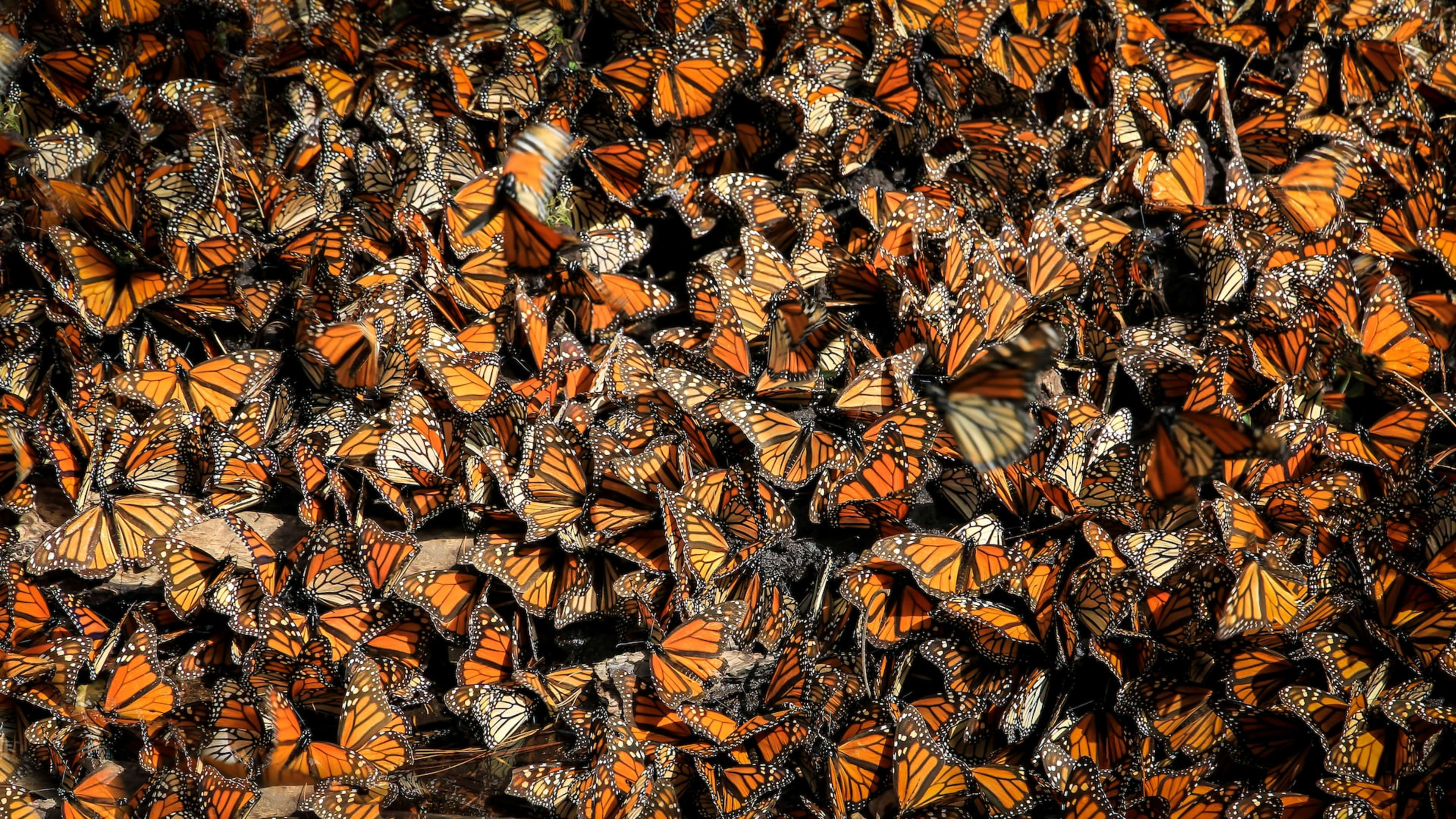Introducing Project Monarch: A Letter from Hipcamp Ecologist Charles Post


The launch of Hipcamp’s Project Monarch happened to coincide with a sobering and timely moment in the history of the monarch butterfly. On July 21, 2022, the International Union for the Conservation of Nature (IUCN) stated the migrating monarch butterfly—weighing as much as a single sunflower seed, known for its unmistakable brilliance and remarkable annual migration that can span thousands of miles—is now endangered. Monarchs are a critical thread in the tapestry of life on Earth, and this announcement indicates that a migration that has existed since time immemorial is on the verge of disappearing on our watch.
While Project Monarch felt timely and important, as an ecologist and IUCN committee member, the tragic nature of the moment stood out. I grew up in the heart of the migratory monarch’s wintering grounds on the Northern California coast, where millions have swarmed for millennia, seeking shelter and mild weather during the winter months. As a kid, I watched them flutter and swirl in masse in the cypress and eucalyptus groves.
The monarchs’ migratory kin embark on a similar winter migration, journeying from America’s heartland and eastern seaboard to the UNESCO World Heritage-listed Monarch Migration Biosphere Reserve in northern Mexico. Here, in a sea of protected pine, oak, and oyamel forests, the monarchs still fill the sky in dazzling, fluttering orange tides.
Yet in my 34 years of life, the Western monarch butterfly population has declined by more than 95 percent. Meanwhile, the Eastern monarch butterfly population has declined by more than 80 percent since the 1980s.
These declines are a symptom of a planet in ecological turmoil. Habitat loss, land use change, and the climate crisis have stripped our planet of species at a rate that is 1,000 to 10,000 times the natural extinction rate (the rate at which species would become extinct without human influence).
At Hipcamp, we recognize that we are a part of nature, not separate from nature. This truth inspired Project Monarch, a monarch conservation program created in partnership with the Xerces Society for Invertebrate Conservation. The initiative was designed to engage land stewards with ongoing education and support to improve monarch habitat across North America.
Early efforts include providing Hipcamp Hosts with access to educational webinars co-hosted by experts from Hipcamp, Xerces, and beyond. The Hipcamp Pollinator Pledge also contributes, encouraging members of the public to commit to adopting four simple practices that can help protect monarchs: grow region-specific milkweed; provide nest sites by keeping a messy garden; avoid pesticides like Glyphosate and neonicotinoids; spread the word.
To truly create the intended positive impact, we had to recognize that we are not alone—that together, at scale, we can help turn the tide and save the monarch butterfly. Our Host and Hipcamper communities are represented in every single state where migratory monarchs exist—in every state where they reproduce, rest, and migrate. When monarchs embark on their annual migration, they stop at Hipcamp lands to refuel and recharge. Hipcamps have become part of their migration story, and as of late, their survival story.
We found that impossible to ignore—so we’re here to help.
Get involved
Learn more about our efforts to save the migratory monarch butterfly and sign the pledge to do your part.
Support Hosts committed to protecting the monarchs
Read on for more on Hipcamp’s work to leave it better
Discover more important stewardship stories from Hipcamp Hosts making a difference.
Recent Posts
The Best Places to See Blooming Bluebells in the UK
As springtime hits the UK, the winter blues are replaced with a violet hue of a different kind. A carpet…
Morel Mushroom Hunting Season: The 2024 Camping Guide
Spring is springing. And we all know what that means—the 2024 morel mushroom season is underway. To increase your chances…
Hipcamp Awards 2024: Best RV & Van Spots in the US
To help you find the best camping in the country, each year we compile data from bookings, reviews, and ratings…
Hipcamp Awards 2024: Best RV & Van Spots in Canada
To help you find the best camping in the country, each year we compile data from bookings, reviews, and ratings…
Hipcamp Awards 2024: Best Caravan Spots in Australia
Awards season has arrived! To help you find the best camping in the country, each year we compile data from…
Hipcamp Awards 2024: Best Campervan Spots in the UK
To help you find the best camping in the country, each year we compile data from bookings, reviews, and ratings…